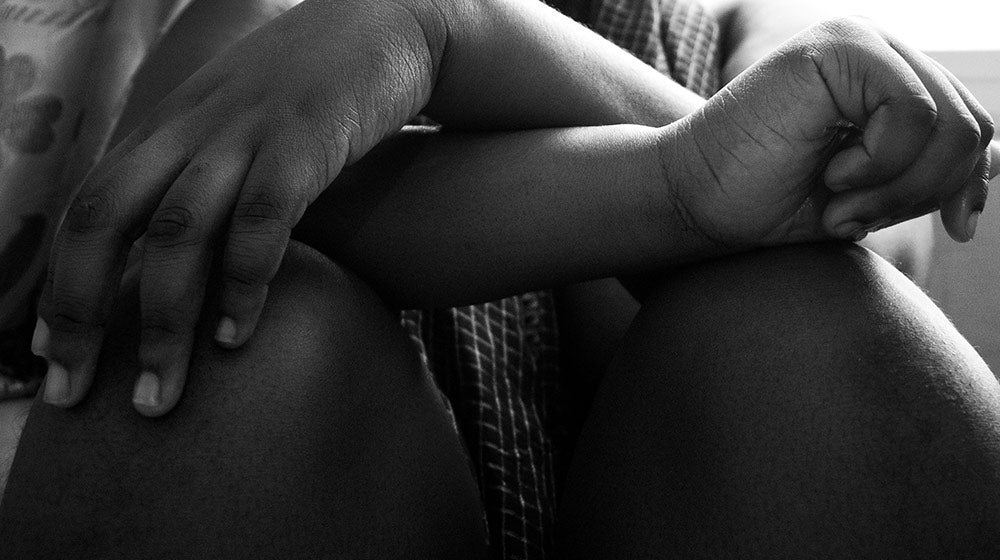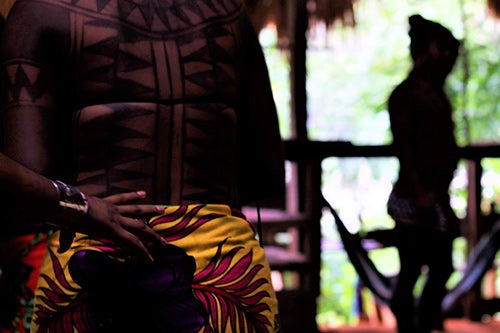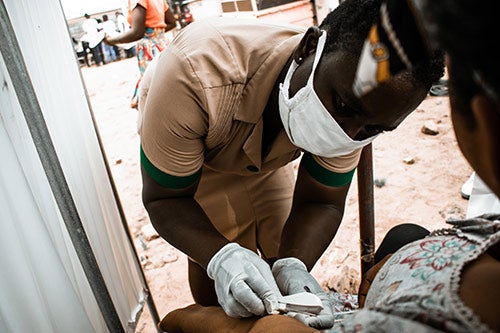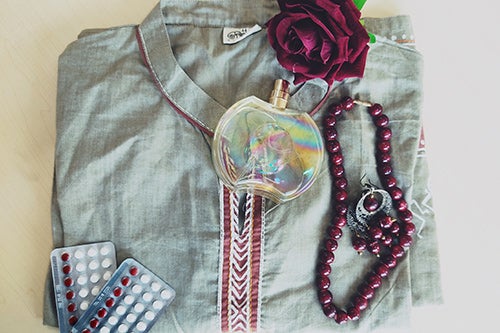Bodily autonomy: Busting 7 myths that undermine individual rights and freedoms

UNITED NATIONS, New York – Nearly half of all women are denied their bodily autonomy, according to data from 57 countries, UNFPA’s flagship report announced today. The 2021 State of World Population report, titled My Body is My Own, marks the first time a United Nations report focuses on the power and agency of individuals to make choices about their bodies without fear, violence or coercion.
The report examines data on women’s decision-making power and on laws supportive of sexual and reproductive health and rights. Tragically, only 55 per cent of women have bodily autonomy, according to measurements of their ablity to make their own decisions on issues relating to health care, contraception and whether to have sex.
The report also highlights the legal, economic and social barriers to securing bodily autonomy for all. Twenty countries or territories, for example, have “marry your rapist” laws that allow perpetrators to escape punishment if they marry their victims, codifying the denial of autonomy experienced by survivors of rape. But some of the most persistent barriers to bodily autonomy involve stereotypes, assumptions and misconceptions about bodily autonomy and the rights of women and girls.
“The few people who have heard of bodily autonomy associate it with negative ideas,” said Romeo Alejandro Méndez Zúñiga, a youth educator in Guatemala who was interviewed in the report, “because it affects the patriarchal male chauvinist system.”
Below are seven common myths about bodily autonomy and why we must abandon these misconceptions once and for all.
Myth 1: Bodily autonomy is a Western concept.
Bodily autonomy is about the right to make decisions over one’s own life and future. It is about having the information to make informed choices. These are universal values.
Governments everywhere have committed, in a variety of international agreements, to protecting autonomy. Respect for autonomy is a core tenet of international medical ethics. And we must not overlook the incredible efforts to secure bodily autonomy being led by advocates all over the world.
Myth 2: There is no right to bodily autonomy.

Bodily autonomy is both a human right and the foundation on which other human rights are built.
It is included, implicitly or explicitly, in many international rights agreements, such as the Programme of Action of the International Conference on Population and Development, the Convention on the Elimination of All Forms of Discrimination against Women and the Convention on the Rights of Persons with Disabilities.
Myth 3: Bodily autonomy represents radical individualism; it undermines group decision-making.
Collective decision-making is common across cultures, societies and governments. But group decisions cannot circumscribe the rights of individuals. As is the case with all marginalized communities, such as indigenous people, they face heightened barriers to realizing their bodily autonomy. This could take the form of vulnerability to violence, lack accurate sexual and reproductive health information or poor access to health services.
In fact, the realization of individual bodily autonomy actually requires collective action. Communities and advocates must come together to dismantle the norms, laws and practice that deprive individuals of autonomy.
Myth 4: One person’s bodily autonomy could end up undermining the autonomy of others.

Having bodily autonomy does not mean any person gets to undermine the health, rights, or autonomy of others. Individuals have the right to choose whether to have sex or get pregnant, for example. But they are not entitled to impose these choices on others.
No one has the right to violate the rights, autonomy or bodily integrity of anyone else.
Myth 5: Some groups of people are not entitled to bodily autonomy.
Rights are for everyone, full stop. That includes bodily autonomy.
Throughout history, we have seen many people – including women, ethnic minorities and other vulnerable populations – denied their fundamental human rights. In ways big and small, they were told that they lacked the capacity or privilege to make choices for themselves.
These abuses continue today.
Persons with disabilities, for example, are frequently denied their right to accessible sexual and reproductive health information and services. They are too often denied protection from violence; girls and boys with disabilities are nearly three times more likely to experience sexual violence, with girls at the greatest risk. Some are even subjected to forced sterilization.
People in detention may be raped or denied health care.

Young people, too, are often considered incapable of making sexual and reproductive health decisions. Sometimes this means parents make life-altering choices for them, like marrying them off before they reach adulthood. This has to stop.
Guardians have a clear obligation to make responsible decisions in the best interest of their children. Additionally, international agreements respect the rights of older adolescents to participate in important matters affecting them. The United Nations Convention on the Rights of the Child recognizes the evolving capacities of children approaching adulthood. They have a right to information, guidance, and health care that empowers them to participate meaningfully in choices about their bodies and futures.
Myth 6: Bodily autonomy undermines traditions and religions.
Bodily autonomy is not simply about sexual choices and reproduction. It is about a person’s whole self, their dreams and potential in life. Most traditions and religions create space for individuals to explore their own conscience on such deeply personal matters as how to protect their health, whether to start a family and how to chart their future. These choices can be – and often are – guided by religious leaders and cultural teachings.
Myth 7: Bodily autonomy is just another women’s issue.

Any concern affecting the welfare of half of humanity cannot be dismissed as a “women’s issue”. But bodily autonomy does not simply affect women. Every individual should be empowered to claim their bodily autonomy. This includes men, women, boys and girls, people of diverse sexual orientations and different gender expressions. It includes people of all races, faiths, nationalities and disability status.
Men, too, can also have their bodily autonomy violated, such as through invasive non-consensual anal exams. People of all genders can experience reproductive coercion – behaviors that interfere with the reproductive choices of others – and even rape.
As is the case with achieving gender equality, the realization of bodily autonomy will fortify the welfare of all people, men and boys included.
UNFPA originally published a version of this article.